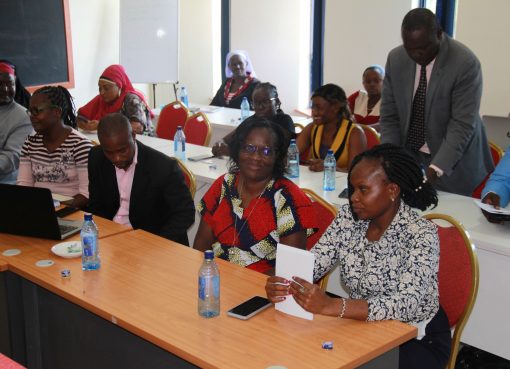A mass drug administration campaign against trachoma has been launched in Kajiado County to eradicate the eye-blinding infection that affects 30 per cent of the population.
The door-to-door outreach spearheaded by Sight Savers International in conjunction with the County Health Department will be carried out for the next three days, with residents being screened and treated.
The mass treatment entails the use of antibiotics to treat those in the early stages and to prevent infection among the uninfected, as well as surgery for those suffering from trachoma trichiarsis, the blinding stage of the disease.
Community Health Volunteers (CHVs) will conduct the door-to-door screening exercise and administer treatment to patients with mild eye infections.
Trachoma is characterised by eyelid swelling, eye discharge containing mucus or pus, mild itching and irritation of the eye, light sensitivity, eye pain, redness, and vision loss.
Patients with serious infections will be referred to the nearest health centres and the Kajiado County Referral Hospital for surgery.
According to Moses Partoti, a Community Health Volunteer, the team will be visiting as many households as possible, including schools and institutions, to ensure that no one is left out.
Partoti revealed that sensitisation about the eye disease will also be carried out to ensure that locals take precautions to avoid the spread of the infection.
“We are conducting door-to-door screening of trachoma in schools, manyattas, homesteads, and all institutions to reach as many people as possible,” said Partoti.
Another CHV, Agatha Oleitiptip, revealed that trachoma was prevalent in arid and semi-arid areas due to the dry and dusty conditions experienced in the area and limited access to water.
The disease is prevalent among pastoralist communities as livestock are kept in close proximity to households, propagating the breeding of flies, which spread trachoma.
The eye-blinding infection is preventable through practicing proper hand washing, regular facial cleaning, and hygienic disposal of animal and human waste, as they provide a conducive ground for the breeding of flies, the vectors of Chlamydia trachomatis, the bacterium that causes trachoma.
“Trachoma is common in dry, dusty areas and is contracted through fingers, eyes, and flies. The disease is treatable in the early stages, but blindness caused by the infection is irreversible,” she said.
According to statistics by AMREF, an estimated 19 per cent of all cases of blindness in the country are caused by trachoma.
In Kajiado North, Central, and South, 28 per cent of children aged between 1 and 9 years have active trachoma, while 3.3 per cent of the population above 19 years has advanced trachoma and is in danger of going blind.
By Rop Janet





